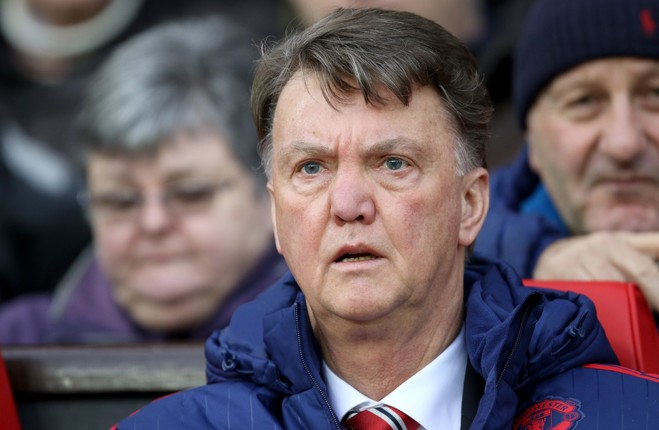WRITING ABOUT THE recent form of under-fire Wayne Rooney, ex-England and Man United defender Rio Ferdinand firmly backed his former teammate.
Ferdinand, in his column for The Sun, argued that Rooney’s form had improved significantly against Chelsea, and explained that “one of two things must have happened” to instill this change.
“Van Gaal may have taken the shackles off and allowed Rooney to go out and express himself,” Ferdinand wrote.
Either that or Wayne has thought, ‘Sod it, I’ll play how I want to play’. Whatever it was, it worked.”
The thought that Wayne Rooney was simply not playing well, irrespective of what instructions the forward was being given by his manager, had seemingly not occurred to Ferdinand. In other words, the former England international seemed to suggest it’s someone else’s fault that Rooney is performing badly and the striker himself should not be held accountable for his actions on the field.
Ferdinand’s logic epitomises what football had become — a world in which players routinely escape serious ridicule or punishment, while the hapless managers are treated with contempt for situations that they have limited control over at best.
This overly sympathetic treatment towards established footballers was also highlighted by the reaction to Rooney’s performance in the 0-0 draw with Chelsea. Granted, the 30-year-old attacker did deliver an improved display against the London club, looking much sharper than he has been for considerable portions of the campaign. But to describe the English striker’s display as “sensational,” as Steven Gerrard did on BT Sport, bordered on the sycophantic, given that Rooney hardly set the world alight on the day, failing to score and almost getting himself sent off with a poor challenge.
Of course, the BT Sport coterie of ex-United pundits had no problems attacking the Dutch coach when the Red Devils exited the Champions League, with Paul Scholes saying: “Van Gaal will be under pressure now. There was no urgency, threat or quality.”
Again, however, there was a reluctance to single out players for criticism, with the overriding implication being that the manager was somehow making these individuals play badly.
Ferdinand, of course, is no stranger to blaming the coach for a team’s failings. Reflecting on David Moyes’ time in charge in the star’s autobiography, he recalled:
Moyes’s innovations mostly led to negativity and confusion. The biggest confusion was over how he wanted us to move the ball forward. Some players felt they kicked the ball long more than at any time in their career.
“Sometimes our main tactic was the long, high, diagonal cross. It was embarrassing. In one home game against Fulham we had 81 crosses! I was thinking, why are we doing this? Andy Carroll doesn’t play for us!”
So essentially, two and a half seasons on from Alex Ferguson’s retirement, Moyes and Van Gaal have both been regularly ridiculed for not playing football the ‘Man United way’.
Sooner or later though, it seems legitimate to ask whether the manager or the players at his disposal are the ones unable to implement the attack-minded philosophy that the Old Trafford faithful demand.
Van Gaal undoubtedly sets his teams up to be particularly well organised at the back, but it seems unlikely that he regularly discourages them from taking risks in attack, as he has been sometimes accused of doing.
The players, instead, should surely take more responsibility, rather than always worrying about the manager. The likes of Morgan Schneiderlin, Bastian Schweinsteiger and Michael Carrick have simply not been providing the team with enough creativity or attacking threat. Of course, Van Gaal bought many of the players, so he should not escape criticism, but the excessive blame aimed at the Dutchman has been disproportionate.
Part of the problem is the group of recently retired ex-players, many of whom would have been close with some of the current stars during their playing days, and who are arguably in an invidious position as a result.
Nevertheless, regardless of what certain grumpy ex-pros may think, a report in The Sunday Times today indicates that the board are keen on keeping faith with Van Gaal for now. However, it will be interesting to see whether Ryan Giggs — a footballing legend and hugely popular figure within Old Trafford — will be subjected to similarly rigorous criticism if he eventually takes over the manager’s job as expected.
The situation is not altogether dissimilar from the one at Chelsea, where Jose Mourinho was turned into a scapegoat for the Blues’ dire form and ultimately made to pay the price for his disillusioned players’ failure to perform on a regular basis this season.
These issues, of course, are part of a wider culture, in which entitled modern footballers invariably consider themselves untouchable and undeserving of any serious scrutiny or criticism.
Consequently, it seems increasingly unlikely that there will ever be another Alex Ferguson or Arsene Wenger-like dynasty in the future. If a group of pampered, egotistical millionaires are unable to have sufficient levels of respect for experienced and renowned managers such as Van Gaal and Mourinho, as appears to be the case judging by recent displays, what hope do up-and-coming coaches have in the long term?

